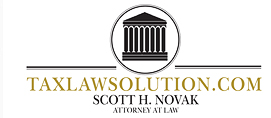IRS Deductions Real Estate

When starting a blog, it is appropriate to consider what the tenor of the blog will be and who it will appeal to. In this blog, I am targeting a broad audience with the hope that you will find the topics I select to be interesting and informative. Please always feel free to provide your feedback to me or ask any questions that come up when you read the blog. Comments and questions are good – this way I know you’re out there.
As a tax professional, I am always interested in what the IRS is focusing on. The IRS often will target an industry or a type of transaction where it expects abuse is occurring. A number of years ago they focused on pizza parlors. Through July, anyone who has “yacht chartering” as a business on their income tax return can expect to be audited. I had a matter a while back where the IRS came after my client for deductions he had taken for the expenses involved with rental real estate. It turns out that there are some very specific rules that one must meet to deduct expenses for rental real estate. To take a deduction, you must be a “real estate professional.” I wrote an article that you can find on my website that details these rules and defines the term “real estate professional” if you would like to know more about this area.
The IRS has an initiative in progress under which they are cross-checking the returns of people who claim to be real estate professionals (and thus deducting rental real estate expenses) to see if they are also getting W-2s from employment. The definition of a real estate professional requires that so many hours be spent in the real estate field that it is nearly impossible for someone who works full time in another industry to qualify. It’s like shooting fish in a barrel. One of the latest cases involving this area is Hassanipour, TC Memo 2013-88. This case involved a researcher who was employed for over 1,900 hours a year and also had losses from rental units that, he claimed, took up several hundred hours of his time a year. The court found that records of his time spent on the rentals weren’t compiled contemporaneously, and the Tax Court didn’t believe he spent more time on the rentals than at his job. The 2008 calendar that the taxpayer presented as evidence of time spent on real estate matters during 2008 was copyrighted in 2009. Guesstimates and recreations are simply not acceptable as evidence of time spent on real estate activities. The taxpayer’s current deduction was denied.




